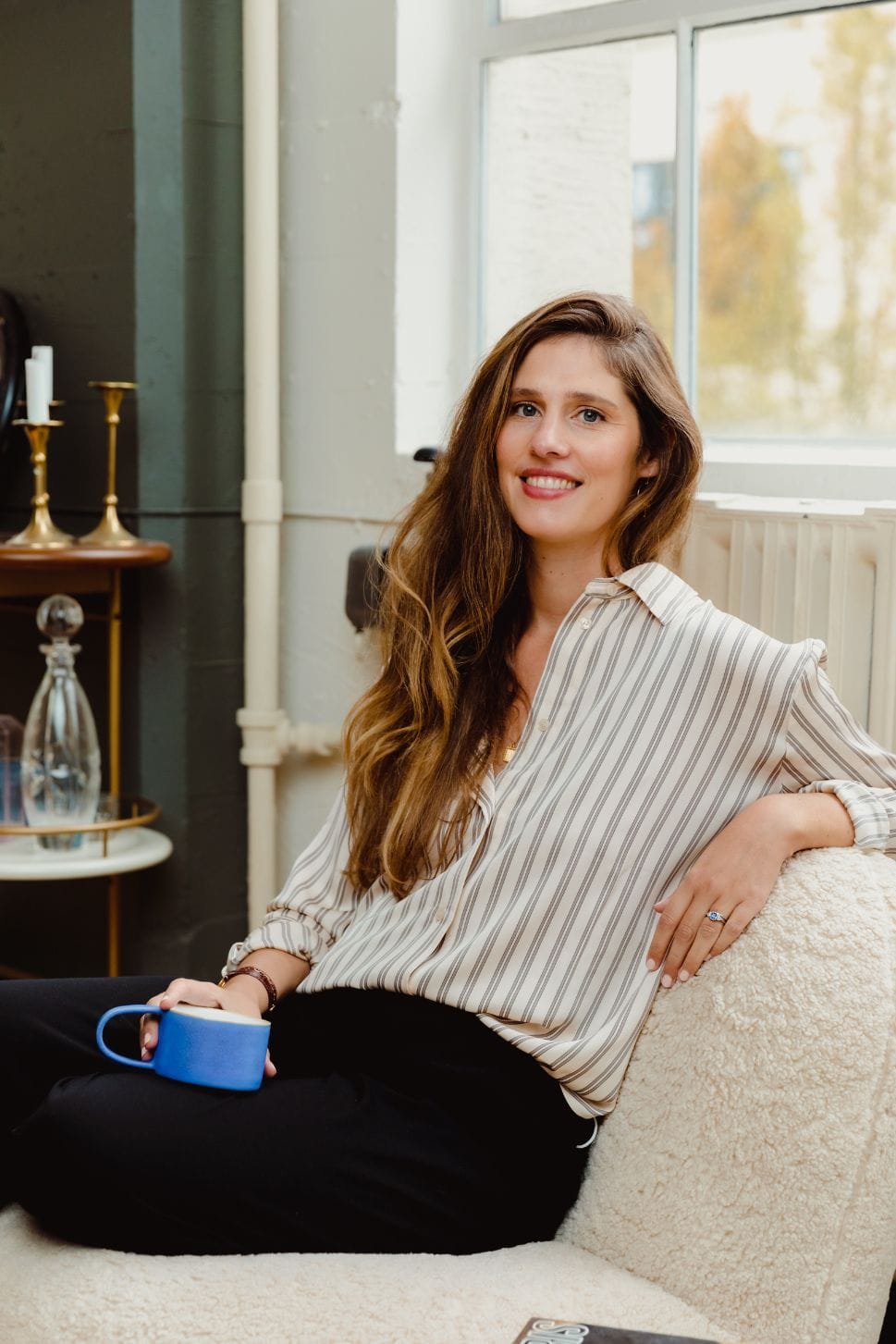
From consumer brand to B2B services, how Hello Biome is supporting A better beauty through the science of microbiome.
In late 2018, Dr Elsa Jungman started a project to develop a minimalist skincare line based on the science of microbiome to fill the gap in the market. The beauty brand was launched in late 2020, during an election and the second wave of COVID lockdown, so it was challenging to say the least. The brand thankfully got a lot of press exposure, and soon after they released their at-home test kit for the skin in order to collect data on the microbiome, which they’ve been working on and developing for years in the lab while creating the skincare line.
So in 2021, the company launched a prototype of microbiome test kits after realising the importance of personalised skincare, with again great press coverage like WWD, which led to deals with retailers like Credo Beauty for exclusive release, and the test kit was launched in fall 2021. Consumers education was paramount to help them understand the need for skin testing, so it required a substantial investment in marketing budget, and the beauty start-up quickly got approached by other brands on the market with regards to data and skin analysis for product development. Realising that consumer education was a challenge so they quickly decided to focus on B2B instead. “We have now shifted to data only to serve the beauty industry, but the vision is still the same today as to develop skin innovation for the microbiome,” explains Elsa.
As a new brand on the market, do not ever underestimate the marketing budget, to get your name out there, and educate your consumers. Other brand founders will confirm this! (editor's note)
A decentralised data collection for increased diversity
Because the company already had the laboratory partner for skin microbiome testing, AI modelling system for analysis to separate the different parts of the skin (scalp, armpit, mouth, etc.), they kept developing the testing models and increased their consumer reach for at-home testing.
“ We use similar tools as a consumer brand would, to target different communities, and get new people in the testing panels. So we have a fully decentralised model. Everyone works online. People can subscribe from anywhere in the world, and if they come within the scope of our study, they can join the panel. We are not limited by location, so we have more diversity” explains Elsa. And “When we need clinical studies, we do work with clinical centers for some tests that need additional clinical testing measurements.” adds Jungman
Hello Biome supports innovation, by collecting data for specific skin conditions like eczema, dryness, etc. They do testing for all parts of the body, including the mouth for oral care for instance, which is a growing segment right now! Sometimes they also conduct before and after regimens in order to substantiate claims. They will provide independent certificates with a clean protocol for the brands.
This is particularly interesting to conduct tests and studies to gather data and insights for product development. Thanks to its background in skin testing and product development through its own consumer brand, it also supports beauty brands in product development with the creation of formulas that would be fully owned by the brand.

AI-powered skin analysis and microbiome research
Hello Biome aims to become an ingredient and formulation discovery platform for skincare products, leveraging AI and in vitro models to prioritise microbiome-friendly ingredients. They are aggregating data and training an AI model to understand skin segmentation and profiling for every body area. They also want to translate that into in silico and in vitro models to screen thousands of ingredients and formulas to license out through partnership and vendor relationships.
“In the long term we want to support consumer brands and ingredient manufacturers or contract manufacturers by actually developing or co-developing with them ingredients because in the end, our aim is that every product we put on our skin will be good for the microbiome and skin health, so we have to be more than just collecting data,” adds Jungman
Long-term view and simplified skincare routine
It’s important to understand the skin microbiome for developing effective skincare products, emphasising the need for a long-term view and intentional product use.
The skin microbiome can be very different from one part of the body to another. Each area has its balance. So understanding its complexity is key. “I wish consumers would be more intentional about their consumption, understand better their skin health and use skincare more carefully because it’s both a waste for the skin health and the environment”, expresses Jungman.
Now a B2B Biotech company, Elsa explains that she has found her ground by focusing on innovation, and finds the B2B environment captivating, hoping to help the potential for microbiome-based innovation in cosmetics, including the use of bacteriophage and the need for streamlining product development using science at the core of decision making.

